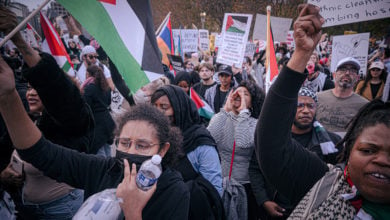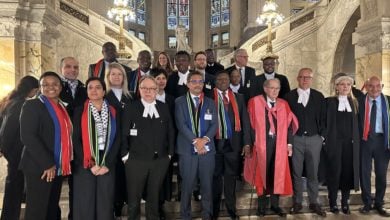As
the political crisis in Yemen continues to escalate, a leading member
of the Gulf Cooperation Council has pulled out of a U.S.-backed deal,
threatening to further stall or completely break down the ongoing
negotiations.
In
an alleged response to Yemeni President Ali Abdullah Saleh’s
refusal to agree to a negotiated settlement, Qatar exited the
negotiations on May 12, the same day the U.S.-backed regime yet again
fired on unarmed, peaceful protesters in three cities. The GCC is
made up entirely of loyal U.S. puppet regimes, including Saudi
Arabia, Kuwait, Oman, the United Arab Emirates, Bahrain and Qatar.
According
to a Qatari foreign ministry official, “Qatar was forced to take
this action because of the stalling in signing the proposed agreement
the continued escalation, the intensity of the confrontations and a
lack of wisdom.” (Gulf News, May 15)
In an attempt to keep the negotiations
from completely disintegrating, GCC Secretary General Abdul Latif
Al-Zayani met with Yemeni officials on May 15. It was his third
meeting in Yemen since the negotiations began in early April. (Yemen
Post, May 15)
The potential failure of the
GCC-initiated negotiations would make it increasingly difficult for
the United States and its many client states in the region to justify
their unconditional support for Saleh’s brutal regime and ensure that
the outcome of the crisis ends in their favor.
On April 10, nearly three months after
Yemeni political discontent finally boiled over into a mass popular
uprising against the U.S.-backed Saleh regime, the GCC put forward
its initiative. Its intentions were to de-escalate the political
crisis and redirect the growing protest movement into “acceptable”
avenues—specifically a newer, better U.S. client regime with a new
face.
The GCC’s plan stipulated that Saleh
would leave office within 30 days of signing the deal in exchange for
immunity from prosecution—an aspect of the negotiations that has
been resoundingly rejected by the people of Yemen. A newly formed
“unity” government, including some opposition parties, would then
be set up within seven days and arrange presidential and
parliamentary elections within 60 days. (Xinhua Net, May 13)
Saleh, however, still adamantly refuses
to sign the deal and has responded with renewed and increasingly
lethal tactics against the people of Yemen.
On May 12, less than 24 hours after
Yemeni state forces killed 13 protesters (Gulf News, May 15), the
regime again opened fire on peaceful protesters, killing six and
injuring upwards of 1,250 people. (BBC, May 12)
Hundreds of police moved in using tear
gas, water cannons and live bullets in Taghiyer (Change) Square in
Sana’a near the university. Doctors on the scene said police blocked
medical teams from entering the area.
“It felt like a massacre, there
were police teams in official uniforms and plain clothes police and
they were attacking the protesters,” said one witness. “They
used tear gas and gunfire and chased some people out into the
streets.” (BBC, May 12)
In spite of the increasingly brutal
tactics of the beleaguered regime, Yemeni protesters have vowed to
continue to fight back until Saleh’s unconditional ouster.
Most
recently, protesters have added blockades of oil production sites to
their arsenal of tactics. Shipping sources say the effort is costing
the Saleh regime upwards of $3 million a day in blocked exports.
(Gulf News, May 15)
“The
more the regime thinks it’s reaching its end, the more it increases
the violence against us, but we’ll remain firm and we’re not
leaving,” said Abdul Karim Mohammad in Sana’a. (Gulf News, May
15)






